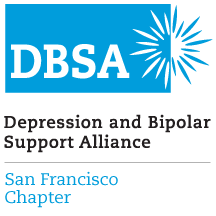How to Help Someone During a Panic Attack
Many people believe they’re experiencing a heart attack when really they're experiencing a panic attack. Here are several things you can do (and avoid doing) to help them in the moment.

Remain Calm
Even if you feel a little afraid yourself, stay calm. If your voice seems to help (and they haven’t asked you to keep quiet), talk to them in a calm voice.
What to say
-
Try reassuring them you won’t leave
-
Try reminding them the attack won’t last long
-
Try telling them they’re safe
Ask how you can help
During an attack, it’s okay to calmly ask what you can do to support them. Just prepare for the possibility of a short or curt response.
The fight-or-flight stress response can affect the ability to think and behave logically. Try to remain calm and neutral, and don’t take their response personally..
What if they want me to leave?
As long as they’re not in immediate danger, take a few steps back and give them some space. Stay nearby so you can still keep an eye on things, and let them know that should they change their mind, you’ll come right back.
Learn the warning signs
If you haven’t already, take some time to familiarize yourself with the early signs
of a potential panic attack.
Panic attacks commonly begin with:
-
A pounding heart
-
Feelings of choking
-
Dizziness
-
A feeling of terror or dread
-
Hyperventilation or shortness of breath
-
Feeling cold or hot flashes
Take action with your words by:
-
Asking if they want to leave the room and go somewhere else
-
Reminding them to keep breathing
-
Engaging them in light conversation, unless they say they don’t want to talk
Be empathic!
An empathic response can be as simple as,
“That sounds really tough. I’m sorry you experienced that. Let me know what I can do to support you.”
Help them stay grounded
To help someone ground themselves, you can try:
-
Using our five senses: gently ask them to list something they see, hear, smell, taste, touch.
-
Physical touch, like holding their hand (if they’re okay with it)
-
Giving them a textured object to feel
-
Encouraging them to stretch or move
-
Encouraging them to repeat a soothing or helpful phrase, like “this feels awful, but it’s not going to hurt me”
-
Talking slowly and calmly about familiar places or activities
Additional Peer Support
Respond with compassion and be mindful of your words and actions, during an attack and at any other time. Panic attacks can be confusing as well as scary. People generally can’t predict them and there’s often no clear cause.
With proper support, they can get easier or go away completely. We've been there, we can help:
-
If you helped someone through mental health issues, get support by joining the Friends and Family support group
-
If you experienced a panic attack, join the main general group. You can find all groups here.


